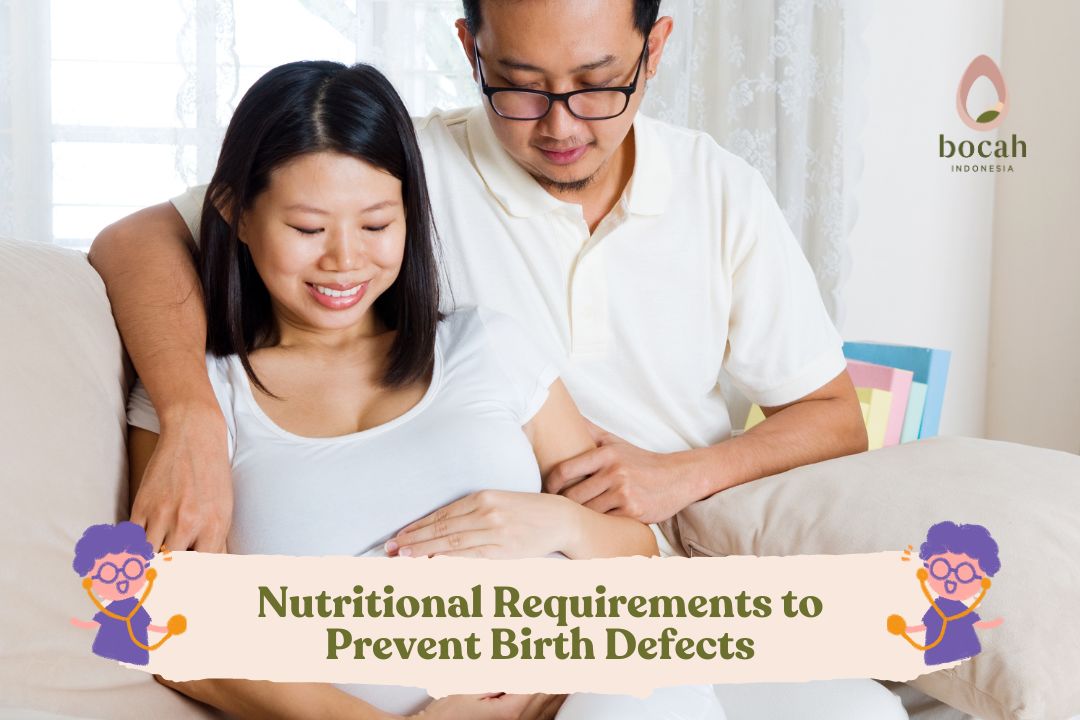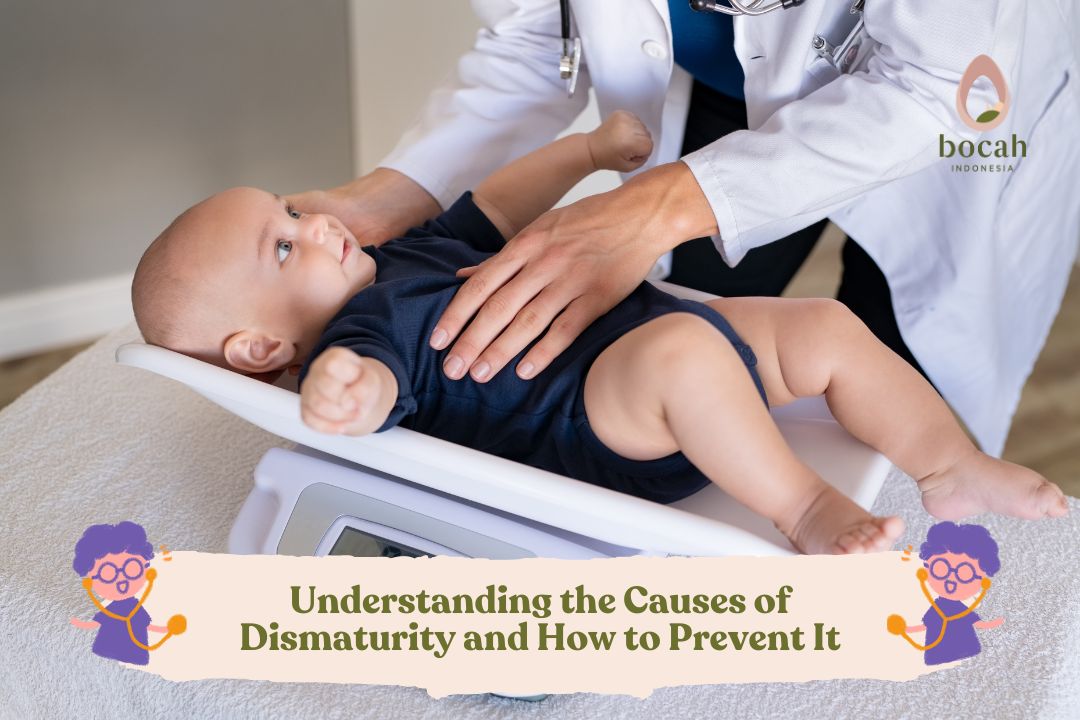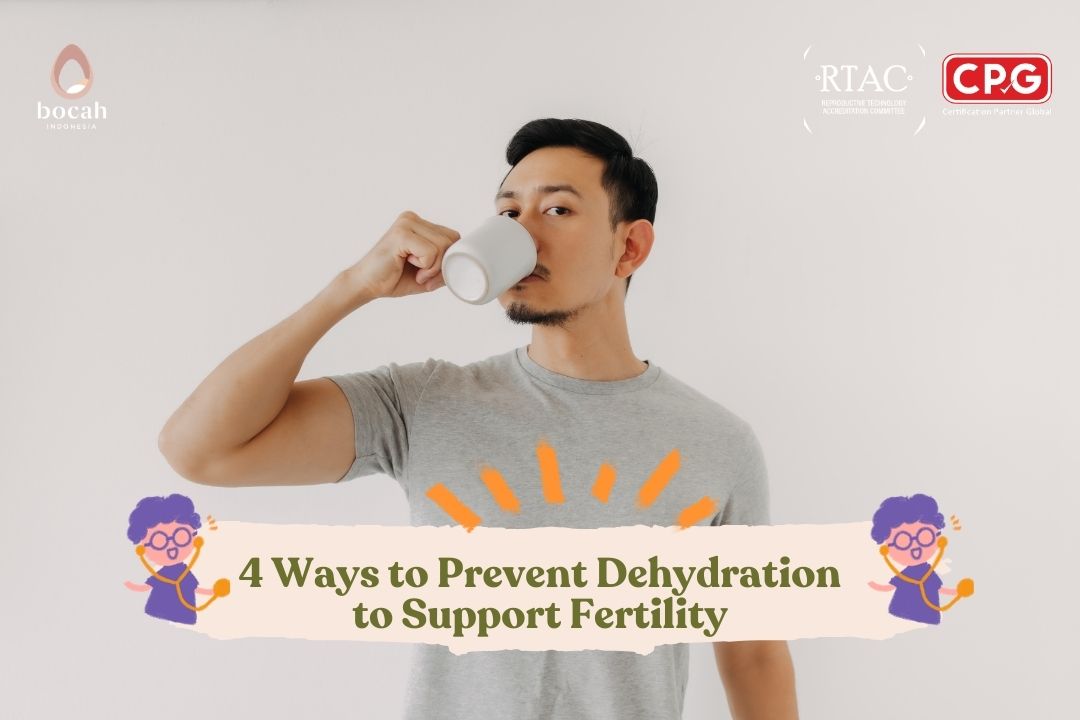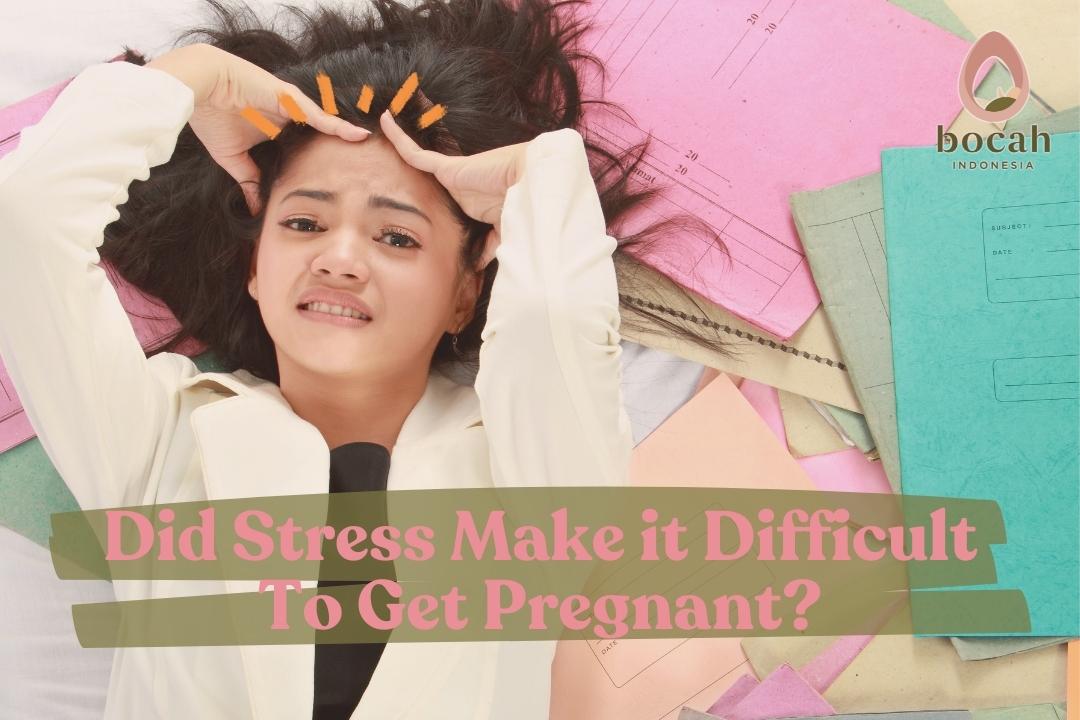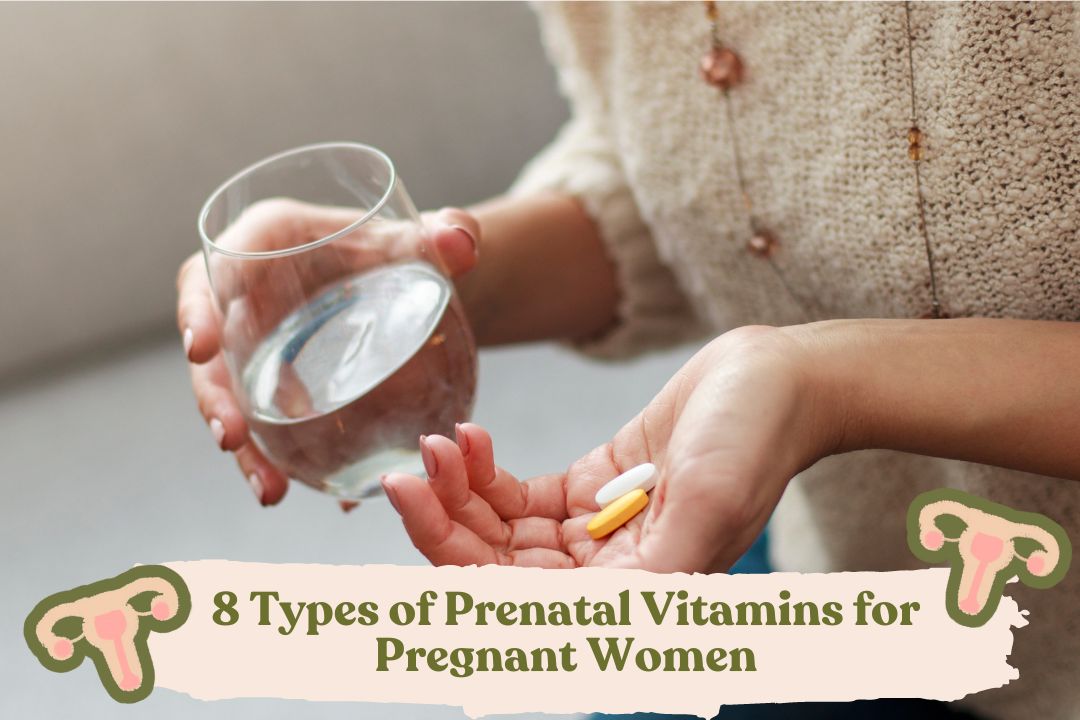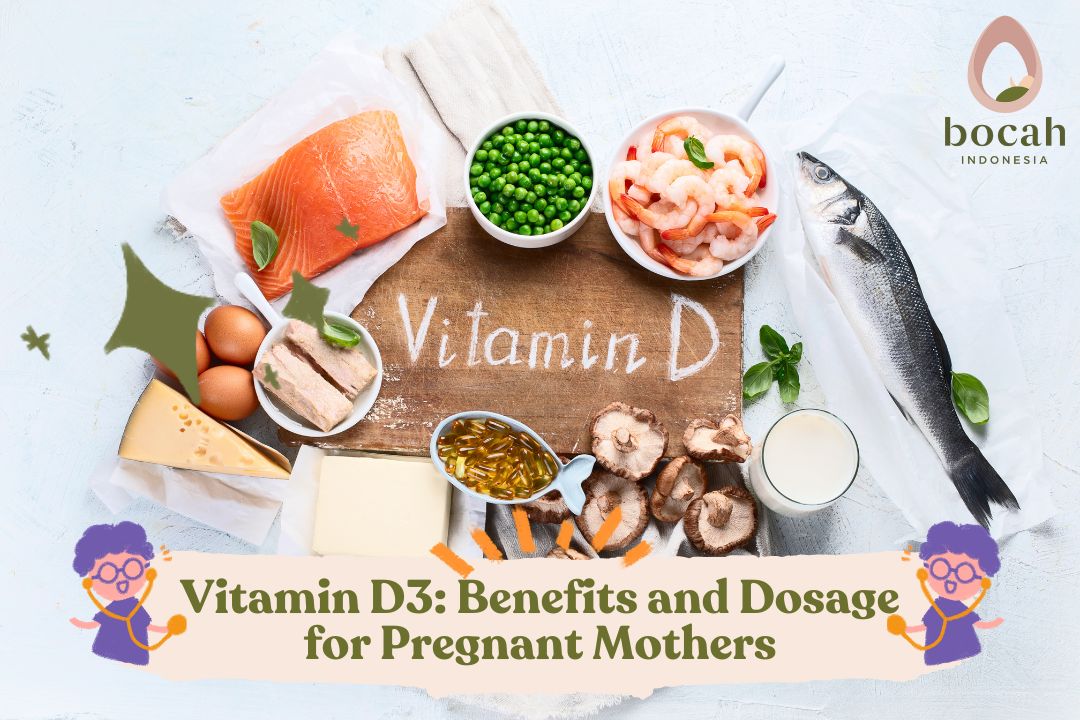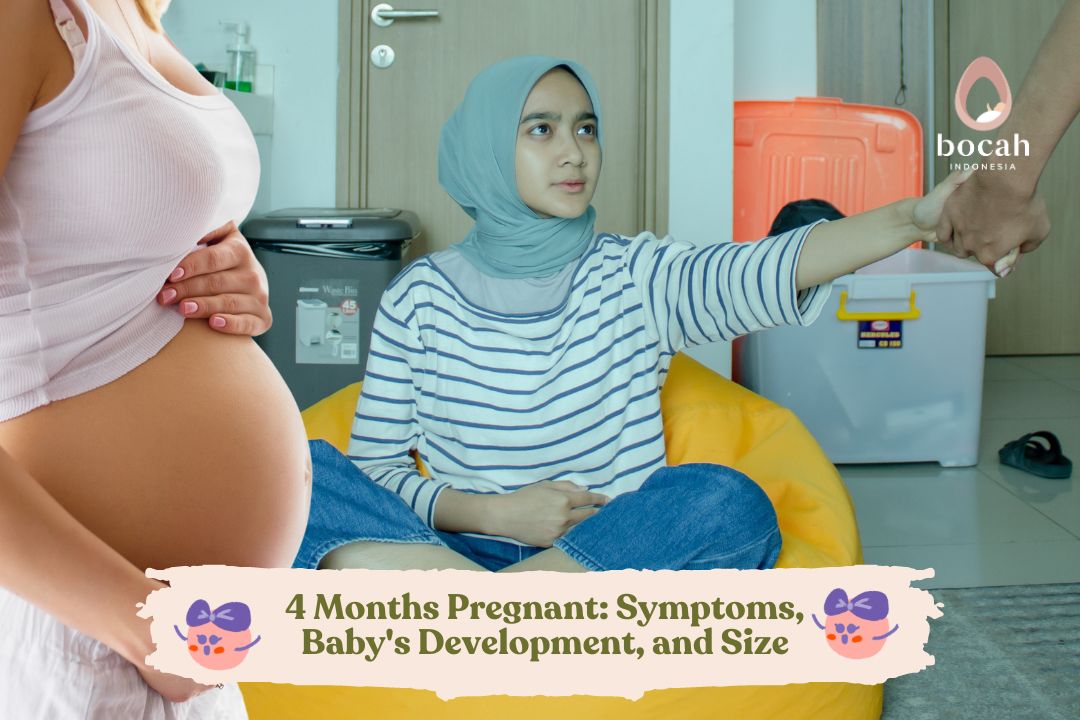Prevent Complications When Pregnant at 35+
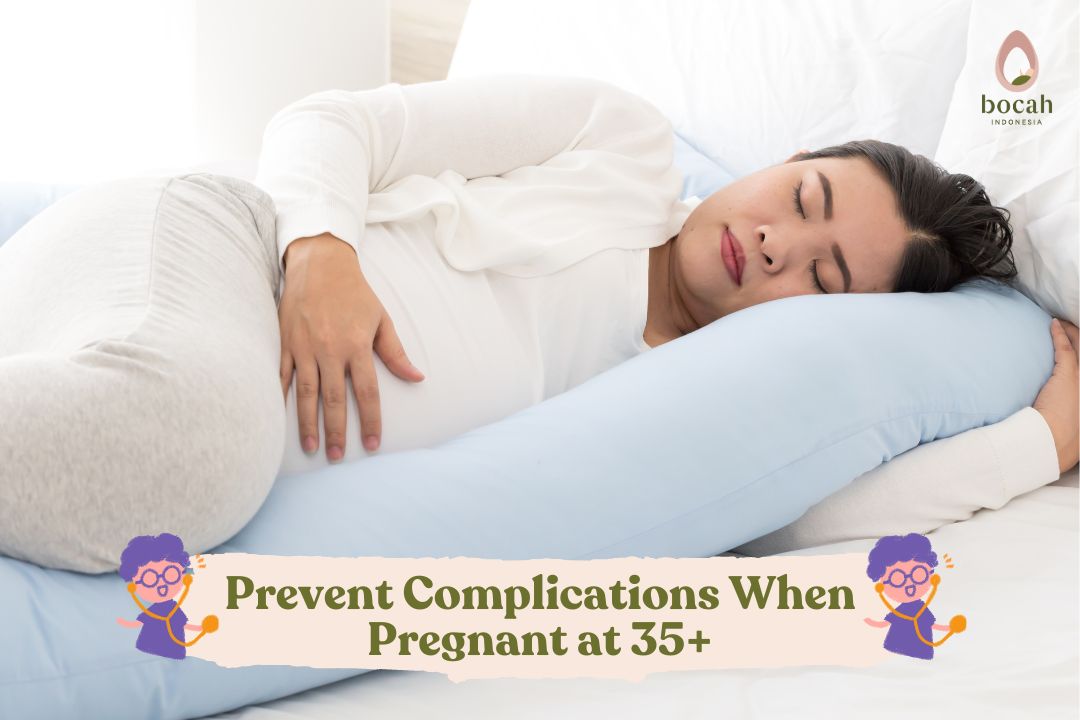
Pregnancy at the age of 35 and above is still normal, but it still requires special attention to prevent various complications and the health of the baby.
In the medical world, pregnancy over the age of 35 is often called geriatric pregnancy. Nowadays, doctors mostly use the term advanced maternal age or Advanced Maternal Age (AMA).
Mums should know that most healthy people who get pregnant after the age of 35 will have healthy babies. Even so, don’t lose sight of certain ways to ensure the health of the baby and the expectant mother. Here are pregnancy strategies for 35+.
Risks of Pregnancy 35 Years and Older
The birth rate does change every year and sometimes tends to decrease. One of the reasons for the increase in pregnancies over the age of 35 is that starting a family at that age is now commonplace compared to previous generations.
Seeing the above phenomenon, pregnancy after the age of 35 is not unusual. However, pregnancy in this age group comes with some potential risks. Regardless of the age of the mother when she becomes pregnant, there are still a number of risks. It’s just that the older the age, the higher the chances of complications.
Tanya Mincah tentang Promil?
Pregnancy at this age has the possibility of egg abnormalities. Other health changes associated with ageing can also affect pregnancy such as the risk of fibroids and endometriosis increases with age.
Some of the risks of older women becoming pregnant include:
.Pre-term birth
- Pre-term birth
- Low birth weight in infants
- Low birth weight in infants
- Miscarriage
- Death
- Death
- Chromosomal abnormalities
- Chromosome abnormalities
- Birth defects
- Birth defects
- Complications of labour, such as early labour
- Caesarean delivery
- Caesarean delivery
- Caesarean delivery
- Preeclampsia or a serious form of high blood pressure
- Gestational diabetes
- Gestational diabetes
- Gestational diabetes
- Multiple pregnancies, such as twins or triplets
Pregnant women over the age of 35 are also at risk of developing chronic high blood pressure in the long term. According to the American College of Obstetrics and GynaecologyAmerican College of Obstetrics and Gynaecology, more people suffer from chronic high blood pressure during pregnancy than ever before.
Between 2000 and 2009, the number of pregnancies in people with high blood pressure increased by 69 per cent. For African-Americans, the increase was even higher, at 87 per cent.
If you have high blood pressure, you may be at risk of pregnancy complications such as:
- Early cesarean delivery
- Early cesarean delivery
- Serious bleeding after childbirth or postpartum haemorrhage
- Gestational diabetes
- Gestational diabetes
- Gestational diabetes
- Stroke
- Fluid build-up in the lungs (pulmonary oedema)
- Renal failure
- Kidney failure
Keeping healthy before and during pregnancy, as well as after childbirth, is the best way to reduce these risks. While this is true for all ages, it is more important for people over 35 years of age.
Healthy Baby Tips at 35
Pregnancy over the age of 35 is not always bad news and a health risk. There is also good news about becoming a parent after the age of 35.
For example, the CDC (Centers for Disease Control and Prevention) says that in general, those who wait to have children gain many benefits. Older parents have more resources to nurture their children, such as higher incomes and higher education.
If you’re planning to get pregnant at this age, here’s how you can increase your chances of having a healthy baby:
1. Pre-pregnancy screening and counselling
When you decide you are ready to have a baby, take these steps before getting pregnant. Get a check-up to make sure you are physically and emotionally ready for pregnancy. Your doctor may give you advice to make your pregnancy programme less risky.
Photo
2. Early and regular prenatal care
The first 8 weeks of your pregnancy are important for your baby’s development. Taking care of the pregnancy early and regularly can increase the chances of achieving a healthy pregnancy and delivering a quality baby.
Prenatal care includes check-ups, regular check-ups, pregnancy and childbirth education, and counselling and support. Prenatal care also provides extra protection for women over 35 years of age.
3. Genetic test
Consult a doctor about genetic testing. The cell-free fetal DNA test or Cell-free fetal DNA(cffDNA) checks for certain conditions in babies, including Down Syndrome. For the test, the health professional takes DNA from the mother’s blood and the baby’s blood. It can also detect conditions such as trisomy 13 and trisomy 18.
Mothers also need to ensure postpartum recovery. The 12 weeks after labour is an important time for health, especially if you are 35 years old and above.
Mothers should see a doctor within the first 3 weeks after delivery to ensure a good recovery. If you have any pregnancy or labour complications, you may need a check-up in the first or second week. Certain problems require immediate medical attention. Seek help immediately if you experience symptoms such as fever and chills, shortness of breath, dizziness, and bleeding. Certain problems require immediate medical attention.
4. Take care of Mum’s physical and mental health
The most important thing when pregnant over the age of 35 is that you are physically and mentally healthy. Make sure to maintain your body’s health by consuming healthy and nutritious food, regularly taking pregnancy vitamins recommended by your doctor, doing light exercise that is not dangerous such as morning walks or swimming and getting enough rest at night.
In addition to being physically healthy, you also need to be mentally healthy. Make sure you are not stressed during pregnancy. Do activities that you enjoy, be open with your partner about how you are feeling during pregnancy.
5. Maintain a healthy weight during pregnancy
Mums, it is important to maintain an ideal weight during pregnancy. For women who are already at an ideal weight, a healthy weight gain during pregnancy is around 12 & 16kg. However, for overweight women, the ideal weight gain is around 4 & 11 kg. Consistent weight gain during pregnancy can provide important support for foetal development and also reduce the risk of health problems during pregnancy and the risk of premature birth.
6. Avoid actions that harm the womb
Avoid habits that could potentially harm the foetus, such as smoking, excessive consumption of alcoholic beverages, and caffeinated drinks. Not only can these actions reduce the risk of fetal distress, but they can also help prevent pregnancy complications such as preeclampsia.
7. Take pregnancy supplements
It is important to ensure that your nutritional intake during pregnancy is adequate by eating foods that are rich in nutrients. To ensure adequate nutrition during pregnancy, it is advisable to take pregnancy-specific supplements that contain a variety of essential nutrients, including folic acid, iron, and a variety of other vitamins and minerals.
Folic acid plays a crucial role in preventing neural tube defects in the foetus, while iron helps prevent anaemia during pregnancy. We recommend that you consult your doctor to determine the appropriate dosage of supplements to take during pregnancy.
8. Follow the obstetrician’s directions
Another important thing to keep your pregnancy risk-free and safe until delivery is to follow the advice of your obstetrician. Make sure you go to the doctor regularly. The doctor may advise you to add vitamins for pregnancies over the age of 35.
Well, if you are now pregnant over the age of 35. Some of the tips above can be considered. Make sure that your father is always supportive and supportive of you during your pregnancy. If you want to plan a pregnancy programme at the age of 35, immediately find a trusted obstetrician. for you during pregnancy.
This article has been medically reviewed by Dr. Chitra Fatimah.
Source:
- Glick, I., Kadish, E., & Rottenstreich, M. (2021). Management of Pregnancy in Women of Advanced Maternal Age: Improving Outcomes for Mother and Baby. International Journal of Women’s Health, 13, pp. 751–759. https://www.ncbi.nlm.nih.gov/pmc/articles/PMC8364335/
- Zhang, et al. (2020). Changes in Maternal Age and Prevalence of Congenital Anomalies During The Enactment of China’s Universal Two-Child Policy (2013-2017) in Zhejiang Province, China: an Observational Study. PLoS Medicine, 17(2), e1003047. https://www.ncbi.nlm.nih.gov/pmc/articles/PMC7039412/
- Shan, et al. (2018). Pregnancy Outcomes in Women of Advanced Maternal Age: a Retrospective Cohort Study from China. Scientific Reports, 8(1), pp. 12239.
- American Collage of Obstetricians and Gynecologists (2023). Having a Baby After Age 35: How Aging Affects Fertility and Pregnancy.
- Healthline (2022). The Risks of Advanced Maternal Age: Pregnancy After Age 35
- Seed, Shawna. WebMd (2023). Geriatric Pregnancy: Pregnancy After 35


